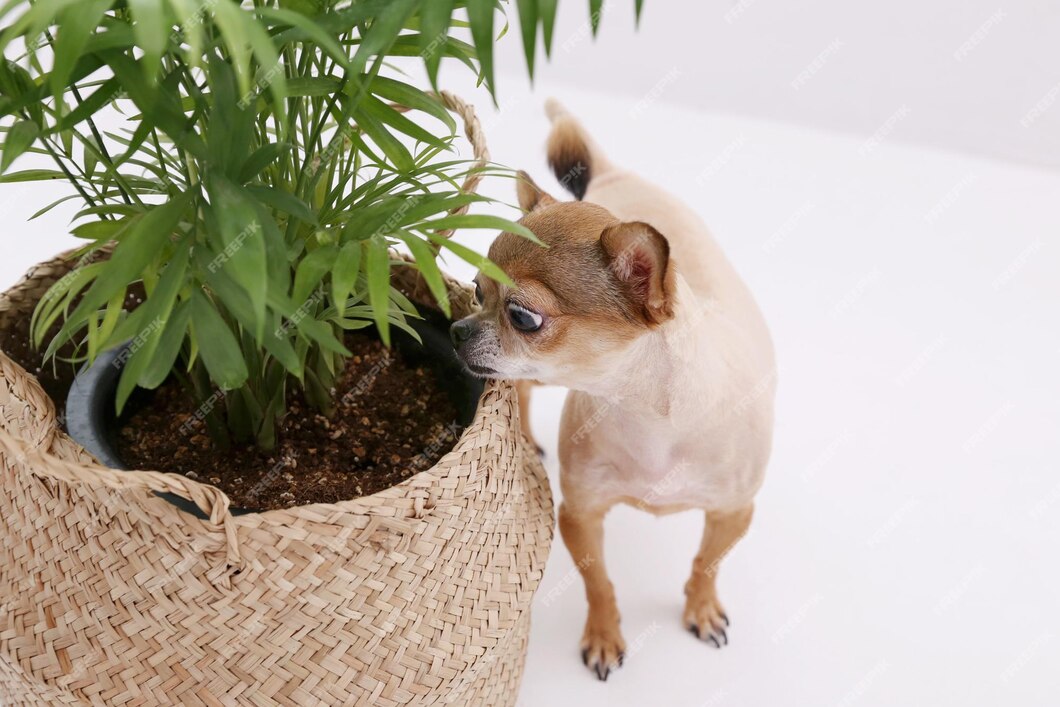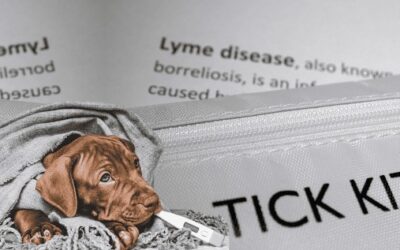Signs & Symptoms of Dog Poisoning [Guide]

As pet owners, we want to protect our dogs from everyday hazards that can lead to serious health problems. Since dogs explore the world through their mouths and noses, they are often unaware of the dangers lurking around the house, yard, or even on walks. Common household items, foods, plants, and chemicals can be harmful or life-threatening if ingested.
Understanding the potential risks and being proactive can make all the difference in protecting your furry friend. This article will highlight some of the most common toxins that can harm dogs and how to prevent accidental poisoning.
Common Toxins That Can Harm Dogs
Dogs explore the world with their noses and mouths, which can sometimes get them into trouble. Here are some everyday hazards to watch out for:
- Human Medications: Prescription drugs, over-the-counter meds, and supplements may help us, but even small amounts can be dangerous for dogs.
- Household Products: Cleaning supplies, insecticides, and rodenticides are toxic if ingested or absorbed through the skin.
- Plants: While many plants are safe, some—like lilies, sago palms, and certain mushrooms—can be highly poisonous to dogs.
- Foods: Chocolate, onions, garlic, and the sweetener xylitol are a no-go for pups. These foods can lead to severe health issues.
- Antifreeze and Coolants: These products contain ethylene glycol, which is extremely toxic and can cause kidney failure.
Signs and Symptoms of Dog Poisoning
Symptoms can vary depending on the toxin, but common red flags include:
- Upset Stomach: Vomiting, diarrhea, abdominal pain, and loss of appetite.
- Neurological Changes: Seizures, tremors, confusion, lethargy, or difficulty walking.
- Respiratory Problems: Coughing, wheezing, or labored breathing.
- Behavioral Changes: Agitation, restlessness, or sudden depression.
- Excessive Drooling: Some toxins trigger drooling or foaming at the mouth.
What to Do If Your Dog Gets Poisoned
As Nandini Maharaj wrote in the American Kennel Club’s article: “All it takes is seconds for your dog to swipe a piece of chocolate or swallow a cigarette butt off the ground. Since you can’t watch your dog every second of the day, it helps to keep harmful substances out of your dog’s reach and act quickly if you suspect accidental poisoning. Watch for a combination of gastrointestinal symptoms, like vomiting or diarrhea, and neurological signs, such as tremors or seizures. These symptoms may be a clue that there is poisoning involved.
While not every instance of vomiting or diarrhea is due to poisoning, it’s best to follow up with your veterinarian if your dog’s symptoms persist or worsen. The faster your dog receives veterinary care, the better their chances are of making a full recovery. If you see your dog ingest something dangerous, stay calm and move your dog away from the item or substance.
Contact your veterinarian and give them a description of your dog’s symptoms along with the suspected poison and amount consumed, if known. If the vet clinic is closed, contact an emergency veterinary hospital or pet poison control helpline and follow their directions. Add these numbers to your contact list:
- The Pet Poison Helpline (855-764-7661). They charge $59 per call. For $15, you can get lifetime access through AKC Reunite.
- The ASPCA Animal Poison Control Center (888-426-4435). They’re available 24 hours a day and charge a consultation fee.”
- All Odie members have access to 24/7 Televet chat through their member portal. Simply log in, click the Vet Chat button, and immediately connect with a licensed veterinarian.
How Can Pet Insurance Help You if Your Dog Needs a Treatment?
Pet insurance can be a valuable tool in managing the costs of treating a dog’s veterinary expenses. By having a pet insurance policy in place, you can have peace of mind knowing that you can provide medical care for your furry companion without worrying about the financial burden. Pet insurance can help cover the costs of veterinary consultations, diagnostic tests, medications, and even specialized treatments if required.
Reimbursement
This method is the most common for pet insurance companies. You pay out of pocket for the veterinarian bill, and then the insurance company reimburses you for what’s covered under the insurance plan. The steps look like this.
- You pay the vet bill after your dog’s visit.
- You fill out the pet insurance claim form.
- Submit the claim form and other required documentation to the insurer.
- After the claim is approved, you will be reimbursed for eligible expenses.
What Does Odie Pet Insurance Cover?
Pet insurance covers various veterinary expenses, providing financial protection and peace of mind for pet owners. Here are the details of the coverage options offered by Odie Pet Insurance:
Illness & Injury Plan
The Illness & Injury Plan is an all-inclusive insurance plan designed to cover a wide range of medical needs for your pet. This plan includes comprehensive coverage for various illnesses, injuries, and veterinary services. Some of the covered items include:
- Veterinary exams and consultations
- Diagnostics (e.g., X-rays, lab tests)
- Prescribed medications
- Surgeries and hospitalization
- Rehabilitation, acupuncture, or chiropractic treatments
- Medically necessary supplies
- Euthanasia and cremation
The Wellness Plan
The Wellness Plan is a monthly membership that focuses on preventive care and covers routine veterinary services.
- Provides reimbursements for routine care items such as wellness visits (exams and vaccines), testing and parasite prevention, dental cleanings and at-home dental care, vitamins, supplements, and more.
- Through Odie’s partnership with Petivity, a leader in smart pet products and proactive care, Wellness Plan members can also receive reimbursements for Petivity devices and health kits, as well as eligible Purina food and supplements.
- Total reimbursement up to $700 per year.



